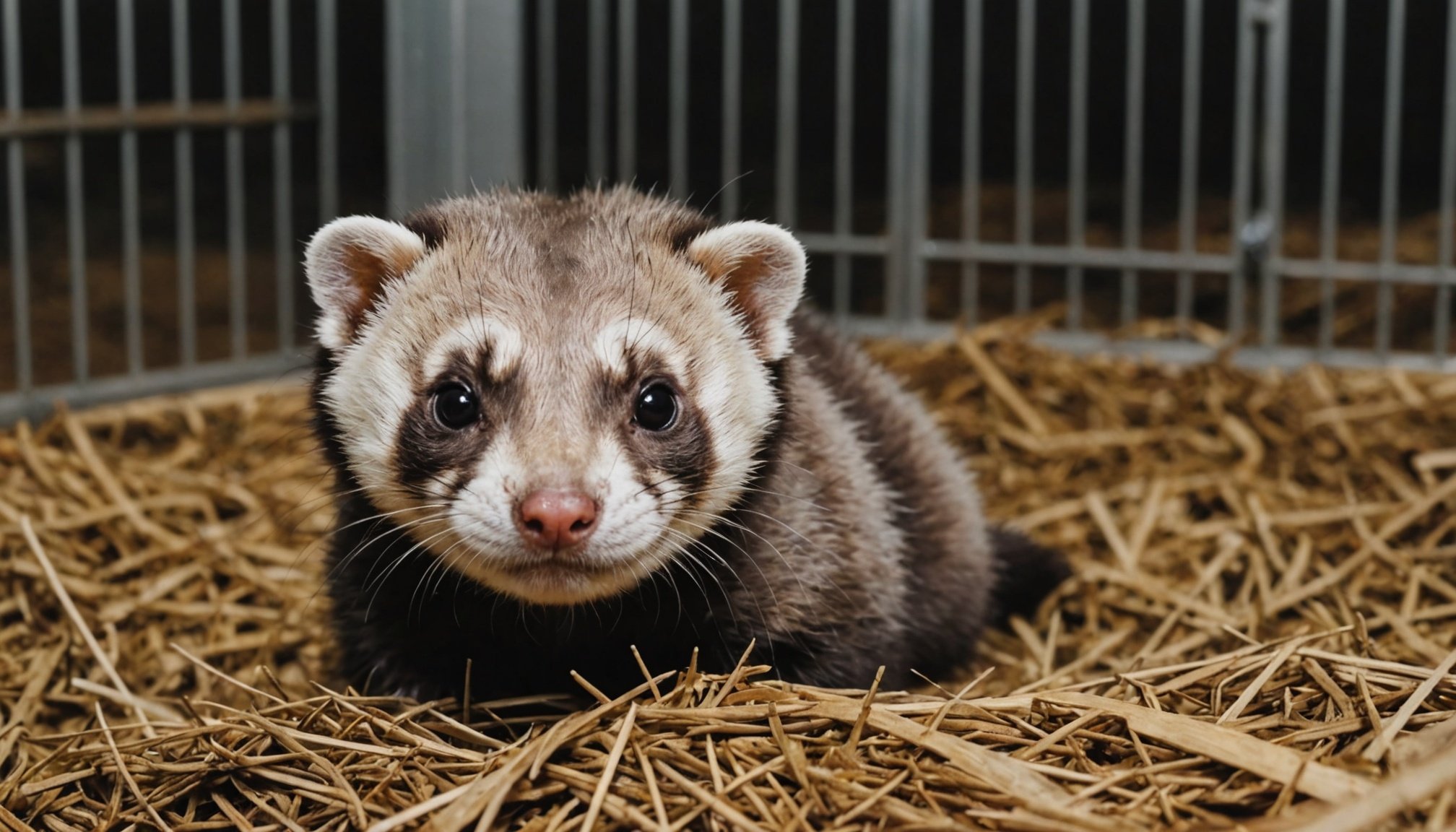Rescuing a ferret is a noble act, one that requires dedication and understanding from the moment you bring it into your home. Ferrets, known for their playful and curious nature, demand a unique environment that caters to their needs. As potential or current ferret owners, you might wonder how to create a space that ensures your rescued ferret feels safe, comfortable, and cared for. This article will guide you through the essential steps to achieve this, emphasizing the importance of diet, hygiene, interaction, and overall care for your newly adopted pet.
Setting Up the Ideal Living Space
Crafting a comfortable living space for a rescued ferret involves more than just providing a cage. As small animals with a need for exploration, ferrets benefit from an environment rich in stimulation and safety.
In parallel : Creating the perfect indoor retreat for your pet rabbit: must-have tips for a cozy british winter
Choosing the Right Cage
Ferrets require ample space to move freely. Opt for a multi-level cage, allowing them to climb and explore. Ensure the cage bars are narrow enough to prevent any escapes and that it includes a secure latch. Remember, the cage is not just a containment area; it’s a sanctuary for your pet.
Bedding and Litter
A cozy bedding area adds comfort to your ferret’s habitat. Use soft materials like fleece or cotton blankets that are easy to clean. Moreover, establish a litter area within the cage, using ferret-safe litter—avoid clumping or dusty kinds to prevent respiratory issues.
Also to see : Unlocking the secrets of rat training: expert methods to teach your pet rat fun tricks
Enrichment and Toys
Ferrets thrive on play. Incorporate tunnels, hammocks, and chew toys to stimulate your ferret physically and mentally. Rotate toys regularly to keep things interesting. Play isn’t just fun for ferrets; it’s an essential aspect of their well-being.
Temperature and Light
Ensure the cage is placed in a well-ventilated area, free from direct sunlight and drafts. Ferrets are sensitive to extreme temperatures, so maintaining a moderate climate is crucial. Additionally, ensure your ferret experiences a natural day-night cycle, as this affects their overall health.
Nutrition and Hydration: Key Components of Ferret Care
Feeding your rescued ferret a balanced diet is fundamental to keeping them healthy and happy. Understanding their dietary needs is crucial, as ferrets have specific nutritional requirements.
Ferret-Specific Food
Ferrets are obligate carnivores, necessitating a high-protein and high-fat diet. Opt for food formulated specifically for ferrets, containing at least 30-40% protein and 15-20% fat. Avoid dog or cat food, as these do not meet their dietary needs effectively.
Fresh Water Supply
Access to fresh, clean water at all times is mandatory. Use a water bottle with a sipper tube, ensuring it is regularly cleaned to prevent bacterial buildup. Alternatively, a heavy, tip-proof bowl can also serve the purpose, but it should be checked frequently.
Treats and Supplements
While treats can be a delightful addition to your ferret’s diet, they should be given sparingly. Opt for treats that are consistent with their nutritional needs. Supplements may be necessary if recommended by a veterinarian, particularly if your ferret has special dietary requirements or health concerns.
Daily Interaction and Socialization
Interacting with your ferret daily not only strengthens your bond but also contributes significantly to their mental and emotional well-being. A social animal by nature, ferrets require substantial interaction to thrive.
Playtime Necessities
Allocate specific times each day for play outside the cage. Ferrets love to explore, so supervise their playtime to prevent any mishaps. Use toys that encourage play and exercise, such as balls or feather teasers, to engage them actively.
Training and Commands
Training ferrets is not only possible but beneficial. Teaching simple commands or tricks can enhance their cognitive abilities and provide mental stimulation. Use positive reinforcement, such as treats or affection, to reward desired behaviors.
Observing Behavior
Regular observation of your ferret’s behavior is crucial. It helps in understanding their preferences and identifying any potential health issues early. Behavioral changes can indicate stress or illness, requiring immediate attention. Always consult a veterinarian if you notice anything unusual.
Social Interactions
If possible, consider introducing another ferret companion. Ferrets are social creatures that often benefit from the presence of a playmate. However, ensure gradual introductions to foster positive relationships and prevent territorial disputes.
Understanding Health Concerns and Disease Prevention
Awareness of potential health concerns is vital when caring for a rescued ferret. With proper attention and preventative measures, you can ensure your ferret remains vibrant and healthy.
Regular Vet Check-ups
Schedule regular veterinary visits to monitor your ferret’s health. Vaccinations, such as those for distemper, are essential to prevent diseases. A vet experienced with exotic animals will provide the best care and advice tailored to your pet’s needs.
Common Ailments
Ferrets can suffer from several common health issues, including adrenal gland disease, insulinomas, and respiratory infections. Recognizing symptoms like hair loss, lethargy, or coughing can help you seek prompt medical care, potentially preventing more severe issues.
Hygiene Practices
Maintaining a clean environment is crucial to preventing disease. Clean the cage regularly, replacing bedding and litter to minimize the risk of infections. Additionally, wash your hands before and after handling your ferret to prevent the spread of germs.
Emergency Preparedness
Be prepared for emergencies by having a veterinarian’s contact information readily available. Understanding basic first-aid for ferrets can be invaluable in critical situations. Ensure you have a small emergency kit with items like tweezers and antiseptic ointment.
Creating a comfortable environment for a rescued ferret involves understanding their unique needs and implementing a care routine that ensures their well-being. From setting up a secure and stimulating habitat to providing a balanced diet and regular interaction, each aspect is integral to helping your ferret thrive in their new home. By embracing these guidelines, you not only enrich the life of your ferret but also build a rewarding relationship filled with mutual affection and joy. As you embark on this journey, remember that each action you take towards enriching your ferret’s life is a step towards a healthier and happier pet.











